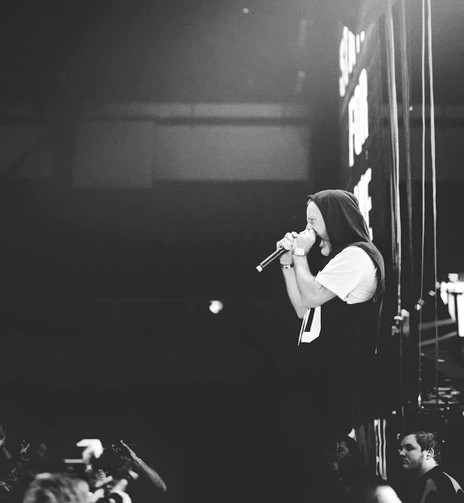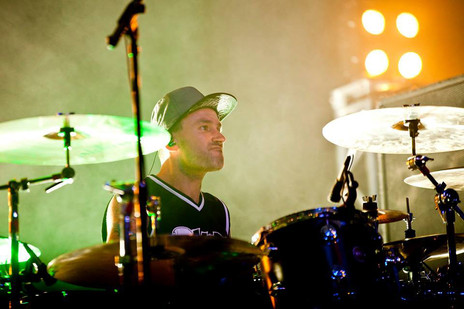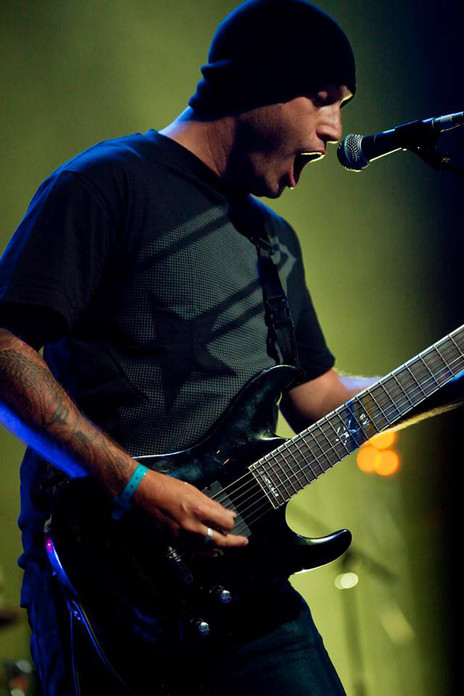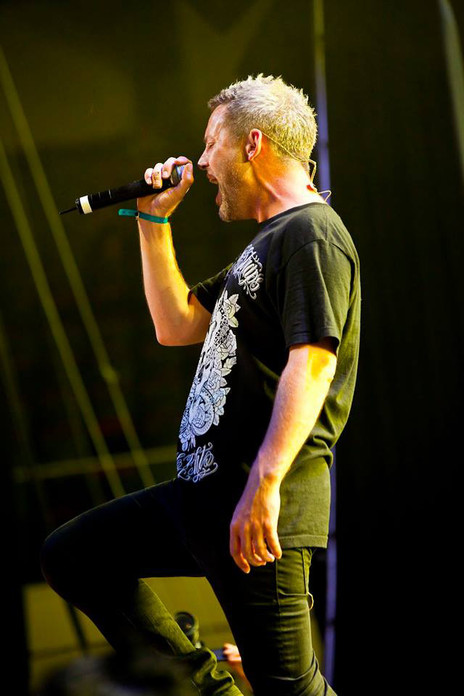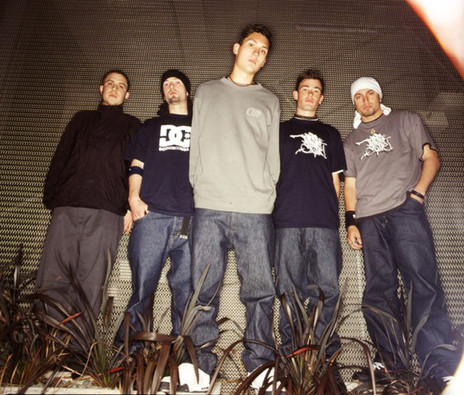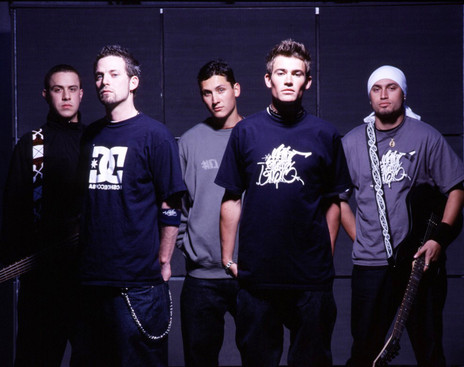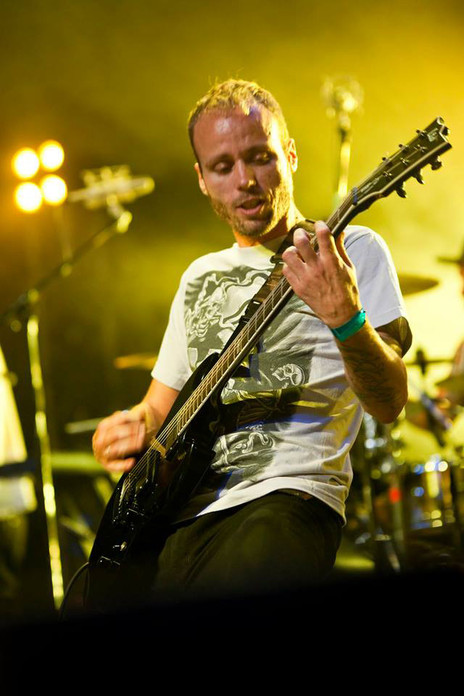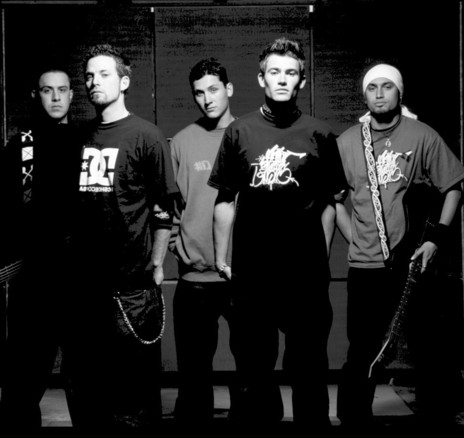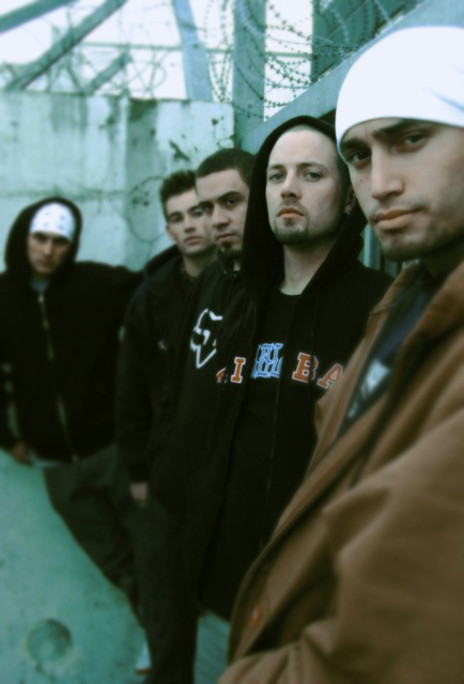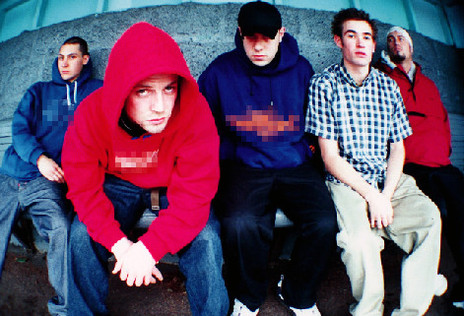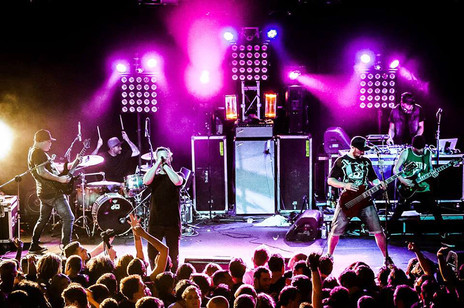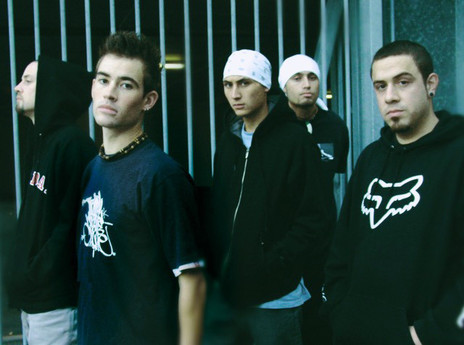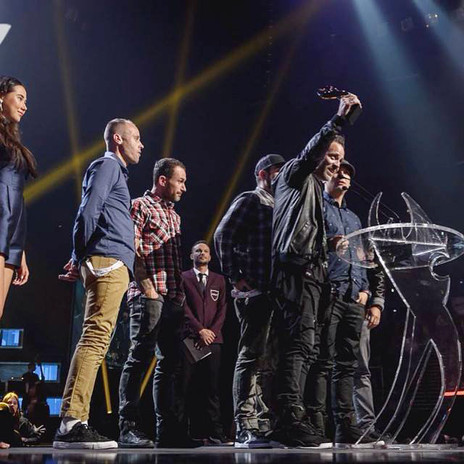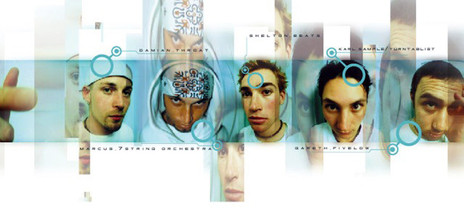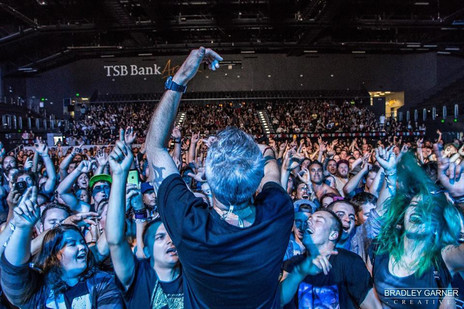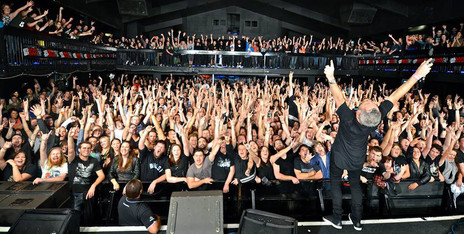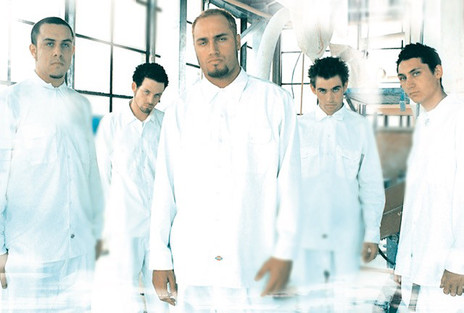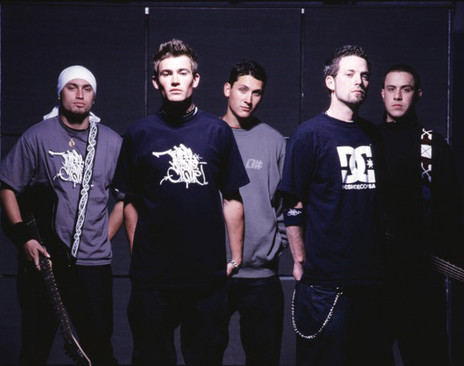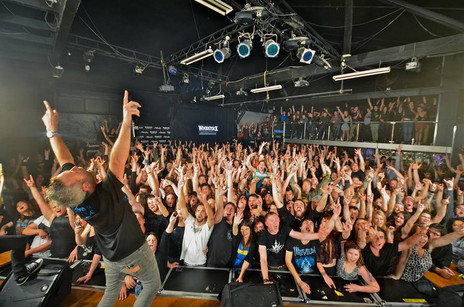At first, radio programmers wouldn’t go near it. “We took it to bFM and they said it was too polished,” Woolright explained to Metro in 2003. “We were like ‘um, it cost $800!’ We took it to Channel Z and they said it was too heavy. We took it to The Rock and they said there was too much hip hop and scratching.”
A DJ friend eventually helped get the CD into the Channel Z office and from there Blindspott started their campaign. They spent their days phoning up the station to request the song, even going so far as to disguise their voices. It didn’t take long to work. ‘Nil By Mouth’ was soon on high rotation on Channel Z and The Rock, with the video getting strong airplay on TV2 music show M2. When the track was released on CD, the group sold out all 1000 copies on the first day.
When ‘Nil By Mouth’ was released, all 1000 copies sold on the first day.
Blindspott soon signed with giant major label EMI. Their self-titled debut album, featuring ‘Nil By Mouth’ and other singles ‘Room To Breathe’, ‘S.U.I.T.’, ‘Phlex’ and ‘Lit Up’, was released in July 2002. It went straight to No.1 in New Zealand and was certified triple platinum. Critics compared them to overseas acts like Limp Bizkit and Linkin Park, who had also experienced a meteoric rise by combining heavy metal with rap music, but the resemblance was one that rubbed the band up the wrong way.
“We never started because nu metal was big,” Vilisini told NZ Musician. “We were just kids from West Auckland into Dr Dre and Snoop and listening to Deftones and Metallica, and it’s not because we tried to combine them – it’s just because we made the music like that. That’s what we liked.”
“We’ve had DJs in our band for so long, we’ve been playing this style of music so long that there’s gonna be people until we die who will say, ‘nah, you’ve just popped up on the bandwagon’,” Woolright told Rip It Up. “We know, so it doesn’t bother us. A lot of people get uptight about it and cause a fuss. But we really don’t give a f*ck. We’re people from out west that drink piss and don’t care.”
The band repped West Auckland hard, but they also understood the limitations of local success. “Even if you’re the biggest band in New Zealand, you’re nothing to the rest of the world,” Woolright said to Rip It Up. Little did they know what was coming.
Success in Indonesia
The biggest crowd Blindspott had ever pulled was at the Big Day Out in Auckland where they played to 7000 fans, but that would quickly change when they hit Indonesia in July 2003. “We walked into the airport and there were instantly five TV cameras on us,” Woolright told Metro. “Four personal bodyguards with walkie-talkies and earpieces came straight up to us. We were laughing and trying to bro down with the security but they were just like ‘get on the bus.’”
They were there to play an MTV anniversary concert and were shocked when they heard the crowd was expected to push 15,000. But on the night of the show, someone from EMI showed up at the band’s hotel with some unexpected news. “I don’t know how to tell you this but there are 30,000 people at the stadium trying to push the gates down and they’re chanting your name.”
to avoid a riot in indonesia, police escorted blindspott to the stage
The band had sold 25,000 copies of their album throughout Southeast Asia and it was estimated that another 200,000 pirated copies had been sold on the black market. Police were called in to block off roads from the hotel to the stadium and to escort the band to the show. When they arrived, a further 15,000 people waiting outside the stadium would have to be let in to avoid a riot.
“It was the sh*t you see on TV,” Alexander gushed to Metro. “There were kids everywhere crying and shaking … it was the type of thing that happens to Michael Jackson.”
End The Silence
The next few years would be a difficult period for the group. In August 2004, two of Blindspott’s original members quit the band. Bassist Gareth Fleming cited personal reasons while DJ Karl Vilisini said it came down to musical differences. The remaining members were growing apart too. They were hardly practising and hadn’t written any new songs.
In July 2005, Woolright pleaded guilty to tagging a wall in St Kevin’s Arcade after he had attended a graffiti exhibition on Karangahape Road. He was discharged without conviction, but an Auckland District Court judge ordered him to pay $200 to the Methodist Mission. “We’ve been around so long, you name it, it’s happened to us,” said Woolright in a 2007 issue of Rip It Up. “Stolen gear, drug addictions, we’ve had girlfriends trying to break the band up.”
With new members – bassist Dave McDermott and guitarist Brandon Reihana – Blindspott eventually got to work on their next album, End The Silence. This time they enlisted the help of Swedish producers Pelle Henrickson and Eskil Lovestrom, who had previously collaborated with hardcore acts Refused, Cult of Luna and Poison The Well. Without Vilisini, the band had traded in the hip-hop element of their sound for something much more heavier and aggressive.
The producers forced some much-needed discipline on the band too. Alexander would have to follow a high-protein diet to help get his voice in shape, while Woolright was advised to start running. “They destroyed our souls first, and then remoulded us into something that’s bigger and better than we were before,” Alexander told the NZ Herald.
End The Silence was released in May 2006, and once again the band went straight to No.1 on the local charts. ‘Yours Truly’, ‘Drown’, ‘Stay’ and ‘Lull’ (featuring Anika Moa) were all released as singles and the album was certified platinum.
From Blindspott to Blacklistt
A year later, the band announced they were breaking up, with a nationwide farewell tour to see them off. They were still on good terms, they told media at the time, and were proud of what they had achieved in their 10 years together as a band. “Phlex has become an anthem at many funerals,” Woolright told Rip It Up in 2007, “and we’ve had fans tell us the only reason they get up in the morning is because of our music.”
But, said Woolright, you need to live in the territory you want to make it in. He took off for the UK soon after to form rock outfit I Am Giant with ex-Stylus/Tadpole bassist Paul Matthews, who had recorded the first Blindspott record (and went on to produce Six60’s ‘Rise Up 2.0’). “We should have moved after the first album and that was always the plan,” said Woolright. “I heard warning bells once other members started getting married and having kids, but was too scared to admit it. My advice to anyone who’s in a band is to do what you can do here and get out.”
It wasn’t over yet. Blindspott reunited in 2009 when they were asked to play local festival Homegrown in Wellington. The four original members of the band had regrouped – sans Woolright, who was seeing success with I Am Giant – but a dispute soon broke out over whether they had the right to keep using the Blindspott name. Woolright threatened legal action against the founding members, but they responded by taking him to court.
Woolright compared the BLINDSPOTTstand-off to Georgie Pie vs Jesters Pies
Speaking to the NZ Herald, Woolright bizarrely compared the situation to Georgie Pie and Jesters Pies. “Jesters Pies was the successful new ‘pie’ company,” he said. “Everyone else turned their back on making pies for a living. I then came back to show everyone my new Jesters Pies. As soon as Jesters Pies started getting rave reviews, for some reason Georgie Pie opened again. I turned up to Georgie Pie and all the locks were changed. Without explanation I wasn’t allowed in and Georgie Pie started trading, selling my recipe at top dollar. A lot more than Jesters Pies. [They now want] to take me to court because they think that because I have Jesters Pies I have no rights in Georgie Pie, even though I started Georgie Pie.”
In other interviews, Woolright said he owned one-third of the name and clarified that it wasn’t about stopping the band from using the name, he just wanted the signing off of the intellectual property to be done properly. “I still can’t actually believe they took me to court. It’s disappointing. It was pretty surreal when I found out,” he told the Otago Daily Times in 2011.
With both parties facing a long and expensive battle in court, the remaining members eventually gave in and agreed to continue under the name Blacklistt, with new drummer Tristan Reilly. “It was draining,” Powell said of the bitter dispute. “We fought it for so long and we sort of lost focus about why we were doing it.” Despite the name change, the fan base was still there. In February 2012, they returned once again to Homegrown, this time as Blacklistt. “Seeing the numbers that turned up was phenomenal,” Powell told Groove Guide. “It built pressure to release an album.”
Blacklistt’s self-titled album was released in September 2013 and scored the band a Tui for best rock album at the New Zealand Music Awards the following year. It was preceded by the single ‘From The Blind Spot’, a nod to their old band name, that would help them finally shed the baggage of the past few years.
“It was about moving on,” Alexander told the NZ Herald. “New name, same music, clean slate.”

